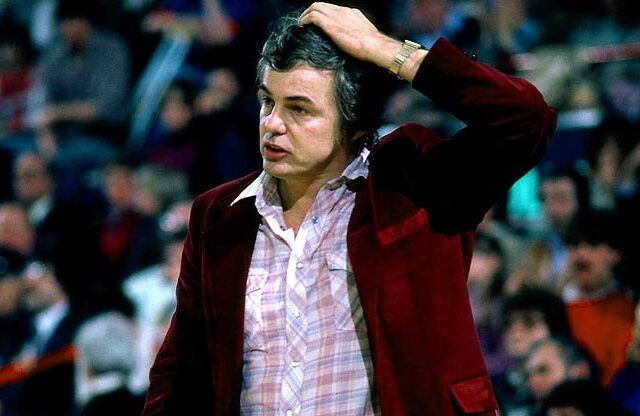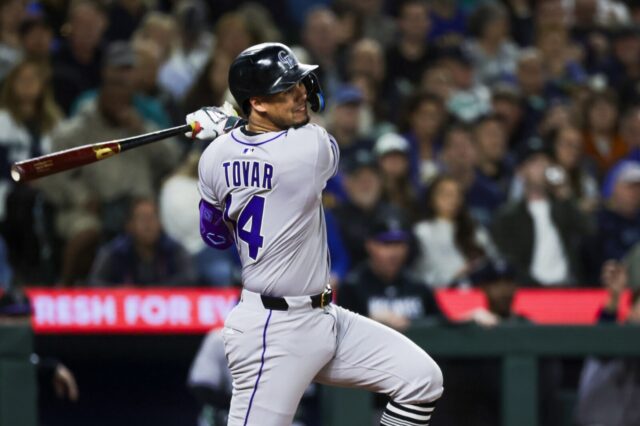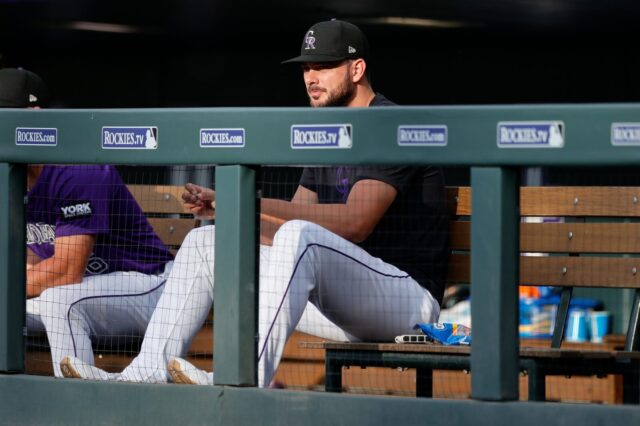Hit batsmen highlighted the conclusion of a “spicy series” between the Chicago Cubs and Colorado Rockies. The hottest underlying storyline was that of the battle between middle infielders.
In the National League, both Trevor Story and Javy Baez are the leaders at the shortstop position. Expanding throughout the majors, only Francisco Lindor makes a credible case against the non-American League pair.
By the numbers, throughout their respective careers, both Baez and Story make a case to lead the way. For our purposes, the argument will stick to the last three-plus years, dating back to 2016, when both truly began to make waves.
Offense
Starting at the plate, the duo has a similar approach. As true, two-outcome hitters, the ball either sails deep into the outfield or fails to leave the bat altogether. While both do possess elite contact skills, they’re utilized for power over on-base prowess in most instances.
Since the onset of the 2016 campaign, Baez has gotten on base at a .322 clip. According to FanGraphs rule-of-thumb calculations, the sum is just above the ‘average’ mark of .320. In the case of Story, the sum bumps up to .335, deemed as an average, nearly above average sum per the same scale.
If hitting was merely based on the ability to get on base, with all other factors put aside, the competition would go to Story, if only slightly. Clearly, that’s not the full picture.
Another statistic avenue that can be taken is that of weight on-base average (wOBA). As a more intuitive measure of a player’s hitting, wOBA measures the weight of each outcome – single, double, triple, etc. – and puts them into a total sum. The figure is used to determine a player’s contributions to their team’s run-scoring abilities.
The battle between the two for superiority in wOBA has been a toggled affair:
In 2016, the number’s were skewed due to a historic start from Story, followed by a season-ending thumb injury. In only 97 games, he racked up 52 extra-base hits, including seven home runs in only his first six games.
Outside of the shortened sample size, the two have been nearly identical in wOBA each year. Overall, the slight edge goes to Story as well, with his double-digit lead in both home runs and doubles playing a pivotal role.
The remaining, yet overlying argument to be made against Story is his home ballpark. As a notorious hitter’s park, Coors Field has long been a catalyst in the discounting of stats. As is the case in several baseball arguments, there’s yet another stat to account for that: adjusted on-base plus slugging (OPS+).
Though less immersive than wOBA, OPS+ measures both a player’s ability to get on base and hit for power, all while being adjusted to a player’s ballpark.
With OPS+, Baez (113) pulls ahead, taking the final tally over Story (111). The slim margin likely falls short of overcoming both Story’s on-base and run production advantage, though it brings the two closer.
The only space left to debate, as far as offensive production, is on the basepaths.
After getting on base, the league has shifted towards avoiding stolen base attempts. Though nabbing an extra base was always supported prior to analytics, the new view of baseball has nearly eliminated the moderate-risk, moderate-reward play of yesteryear.
Across the league, stolen base attempts have dipped slowly in the last decade. In 2009, seven different clubs attempted at least one stolen bag per game. Through the first portion of 2019, that total has fallen to two – the Kansas City Royals and Texas Rangers.
Between both Story (53) and Baez (45), the totals since 2016 are once again close but lean towards the former.
From an offensive standpoint, the battle between the two favors Story in several facets, with his league-leading power at the position buoying his long-winded breakout.
Defense
Fielding is the most complicated argument when comparing the two elite infielders.
A similar comparison, along with the arguments that come with it, has been made between Story’s teammate, Nolan Arenado and Baez’ teammate, Kris Bryant. The two are both commonly stationed at third base, with Arenado leading the way as one of the best defensive players in all of baseball.
The one thing the head-to-head correlation ignores is versatility.
When just looking at the shortstop position, Story’s 33 defensive runs saved since 2016 is significantly higher than Baez’ total of –2. The problem is the latter’s ability to spread around the field.
For comparison, Bryant’s fielding has always been seen as similar to Arenado’s merely based on the fact that he can move to the outfield, as well as play multiple infield positions. The same is true for Baez, who despite lagging behind at shortstop, makes up for his deficit with the ability to spread out. He has double-digit games at every single infield spot in his career, as well as three appearances in the outfield.
Given the rosters that each player currently resides on, Story’s skillset is built for the Rockies, while Baez’ talents are utilized well for the Cubs.
When starting a brand new team, having a player like Baez to man several positions, while also garnering success would be pivotal. If the team is already built, finding the best player to fill the shortstop spot would yield Story as the greater option.
Overall, the nod between the two likely goes to Baez with the leather.
Conclusion
Potent offenses have overtaken the majors, with the greater hitting teams often succeeding more than those that can field well.
Between the two, Story has risen to be the NL’s elite shortstop at the plate, though Baez will continue to own the limelight due to his litany of top plays on SportsCenter.
With all other things equal, it’s hard to argue that a club would adamantly prefer Baez over Story in the battle of 26-year-old phenoms.




